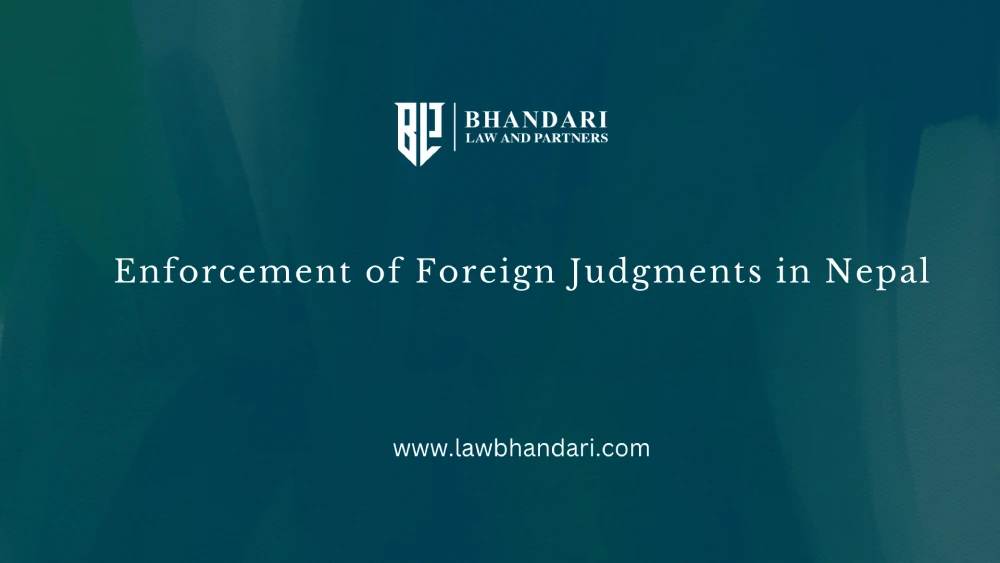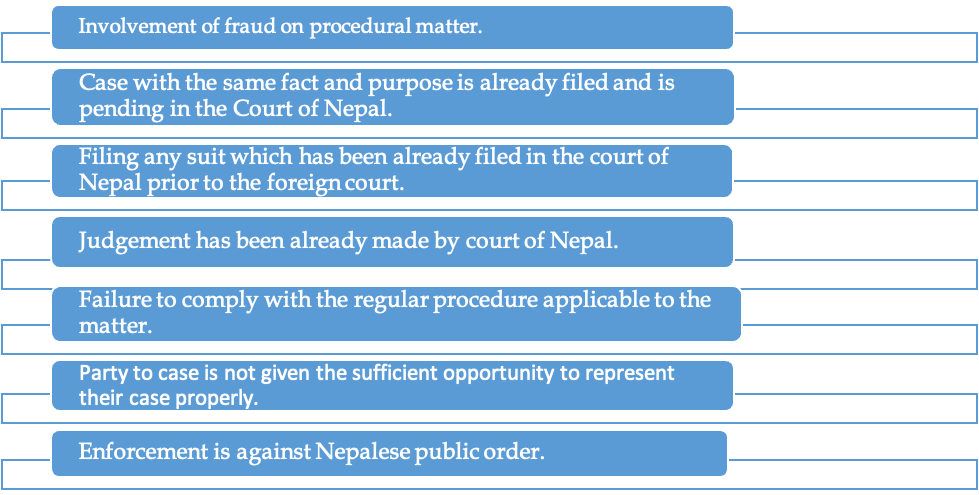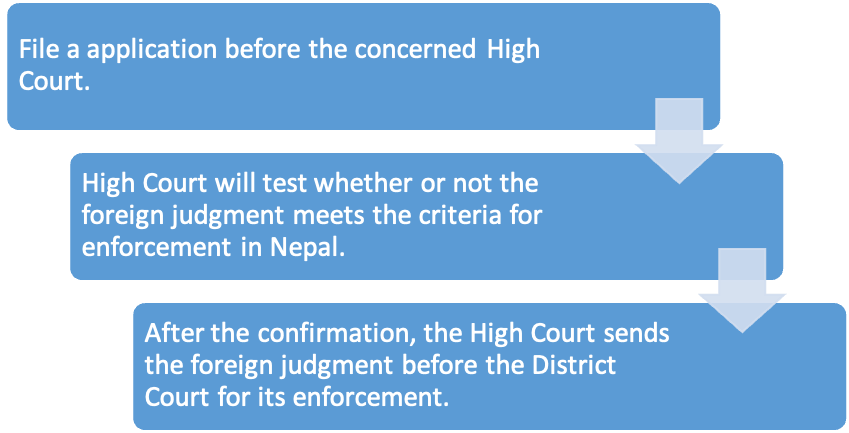Table of content
-

Enforcement of Foreign Judgments in Nepal
1. Introduction:
When the court of one country or jurisdiction accepts a judicial decision made by the court of another foreign country, the foreign judgment is said to be recognized. Once the foreign judgment is issued, the victorious party in the case can pursue its enforcement at overseas. The identification of such judgment generally relies on bilateral or multilateral treaties between the countries or any international agreement.
2. Governing Law:
The Mutual Legal Assistance Act, 2014 (2070) (hereinafter referred to as "MULA" is the primary law governing the enforcement of Foreign Judgment in Nepal. MULA regulates the process of providing and obtaining legal assistance between Nepal and foreign countries on matters of judicial proceedings. Section 5, allows the Nepalese government and foreign nations to request for enforcing foreign judgments.
MULA governs the procedures and requirements for seeking and granting legal support between Nepal and other countries, facilitating cooperation in various legal matters, including the recognition and enforcement of foreign judgments.
3. Enforcement of Foreign Judgment is Provided Based on Bilateral Treaty:
Section 3 of MULA, provides a general rule that legal assistance can be provided to a foreign country based on a bilateral treaty or based on reciprocity commitment from the foreign country. However, the enforcement of foreign judgments in Nepal is contingent upon the existence of a specific bilateral treaty between Nepal and the foreign country.
4. Cases on which the foreign judgment shall not be enforced
Section 4 of MULA excludes certain matters from the scope of mutual legal assistance which are as mentioned
a. In civil cases the total claim amount which is below one hundred thousand Nepalese Rupees,
b. In a criminal offense with a punishment below one hundred thousand Nepalese Rupees,
c. Judgment which undermines the public order or sovereignty of Nepal.
5. Conditions for Enforcement of Foreign Judgment in Nepal
Section 37 of the MULA outlines criteria for the enforcement of foreign judgments in Nepal. It stipulates that for a foreign judgment to be enforced, the following conditions must be met:
a. The judgment must be issued by a court with appropriate jurisdiction (competent court).
b. The judgment shall be capable of being enforced in the judgment-issuing country,
c. The judgment should be final and not subject to further review by the judgment-issuing country.
6. Denial for enforcement of Foreign Judgment
Section 37 (3) of MULA provides the condition that the foreign judgment can be denied to enforce in Nepal.
It can be denied due to the following conditions:

7. Process of enforcement of Foreign Judgment in Nepal
Any foreign party or a government wishing to enforce foreign judgment in Nepal is required to follow proceeding explained in the figure below:

Figure: Process explaining the enforcement of Foreign Judgment in Nepal.
8. Document that needs to be submitted for the enforcement of foreign judgment
For the enforcement of foreign judgment, the following documents need to be submitted:
a. Full text of the certified judgment,
b. If the judgment was made in absentia, originals or certified copies of the document establishing that the process was duly served on the party who was absent,
c. All documents establishing that the judgment satisfies the requirements
d. A copy with full text of the judgment translated into the Nepalese language, as certified by the concerned diplomatic or consular representative or by a person authorized to make formal translation.
Date of Publication: 2nd Februrary 2024
Disclaimer: This article published on our website of Bhandari Law and Partners (one of the leading law firm in Nepal ), is just for information purposes only. It shall not be taken as legal advice, advertisement, personal communication, solicitation, or inducement. Bhandari Law and Partners or any of the team members of the firm shall not be liable for the consequence arising from the information provided. As the factual situation may be different in your case, thereof if you need further legal advice on the subject matter, please Contact Us .
Related Professionals:
Frequently Asked Question
For quick legal assistance:
You can directly call to our legal expert: +977-9808811027
Even can call or drop a text through What’s app , Viber, Telegram and We Chat at the same number.
Also can do email on : info@lawbhandari.com
contact us
Phone :,
,Connect with our professional lawyers in Nepal :
Follow Our Law Firm on Social Media :